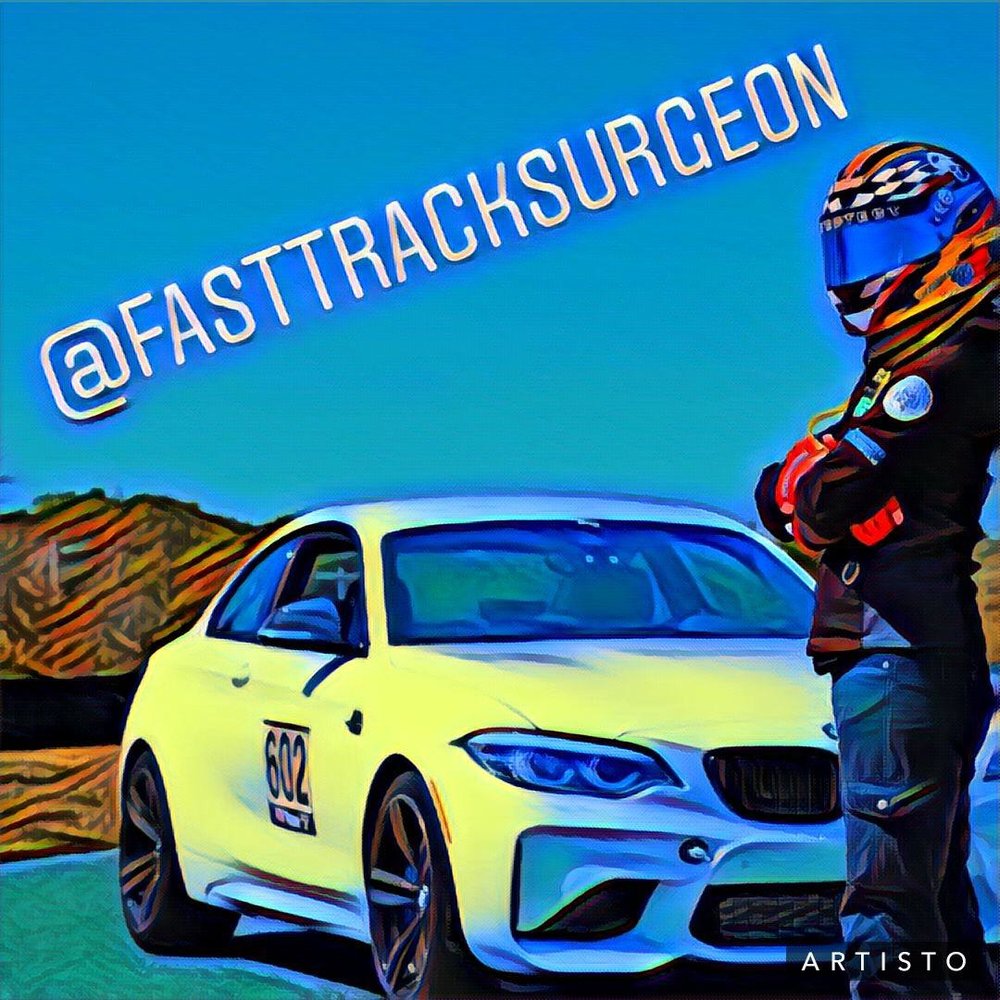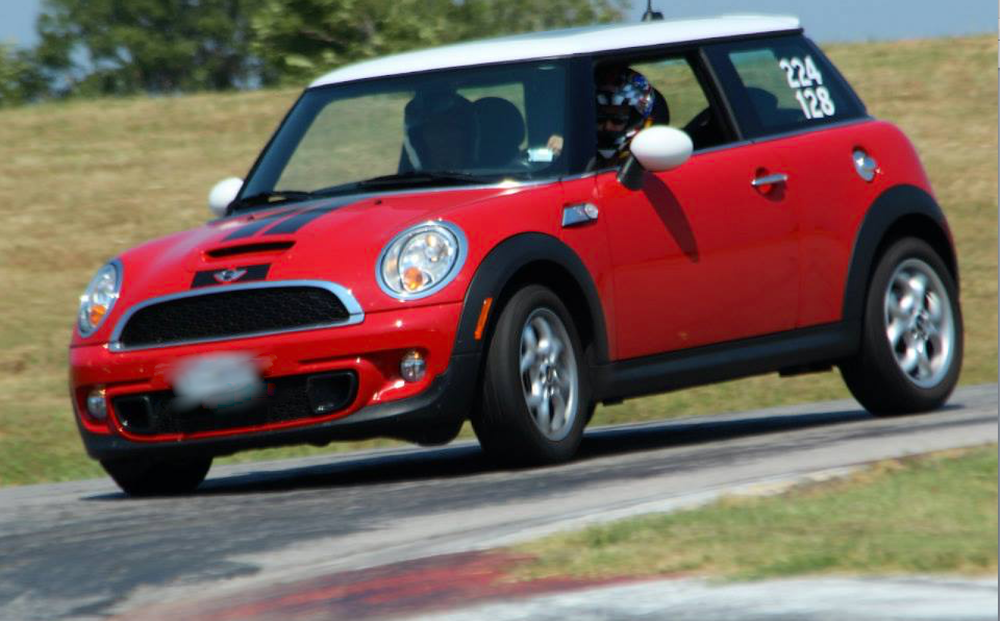
What is your favorite wellness activity?
High-Performance Drivers Education
How long have you been doing it?
6 years, since 2013.
How did you get started?
I stumbled upon a book entitled by Ingrid Steffensen. I was looking for books on skills development so that I could better teach my residents laparoscopic suturing skills during my year of fellowship training. The book chronicles the learning curve of a woman who learns to drive her street car on the racetrack, and details the many other lessons and skills she gains from learning the sport. I was immediately enthralled by the book and just couldn’t put it down. What appealed to me most of all was that she drove a car that was EXACTLY like mine. At the end of it, I thought, “I can do this.”So there I was, in the middle of Oklahoma at a racetrack called Hallet Motor Racing Circuit, a 1.8-mile road course with 10 turns.

What is the most important thing you have learned from HPDE?
I learned on my first day of driving was to always look farther ahead than I thought I needed to, so that I would have time to appropriately modify my inputs. By the time something is right in front of you, it’s too late to react—by looking as far ahead as you can see, you can actually still see everything immediately in front of you and also see the important reference points coming up so there is no lost information. Training myself to do this took years of consistent effort, but has saved me from getting into incidents and unsafe situations on the road.
How does this activity bring wellness to your life when other activities have not?
For me, HPDE provides everything that a wellness activity should: community, learning new skills, support, a place to retreat from every day life, and a method to refocus away from everyday things. But most of all, it teaches me to continually suspend assumptions. By constantly having to stay in the moment to maintain safety, I am forced to see in real time what is actually occurring, and I have to react appropriately to that rather than just relying on my preconceptions of what I think is going to happen. For a general example, someone with more horsepower and different set up (suspension, tires, etc) may be faster than me on a dry sunny day, but in different conditions (rain, different parts of the track), I may be faster than them. So I am constantly challenged to see reality as it unfolds, and to recognize advantages that at first may not be obvious. Recognizing skill in myself and in others is the ultimate reward. It is important we always remember to avoid overestimating people, and never underestimate them either!
